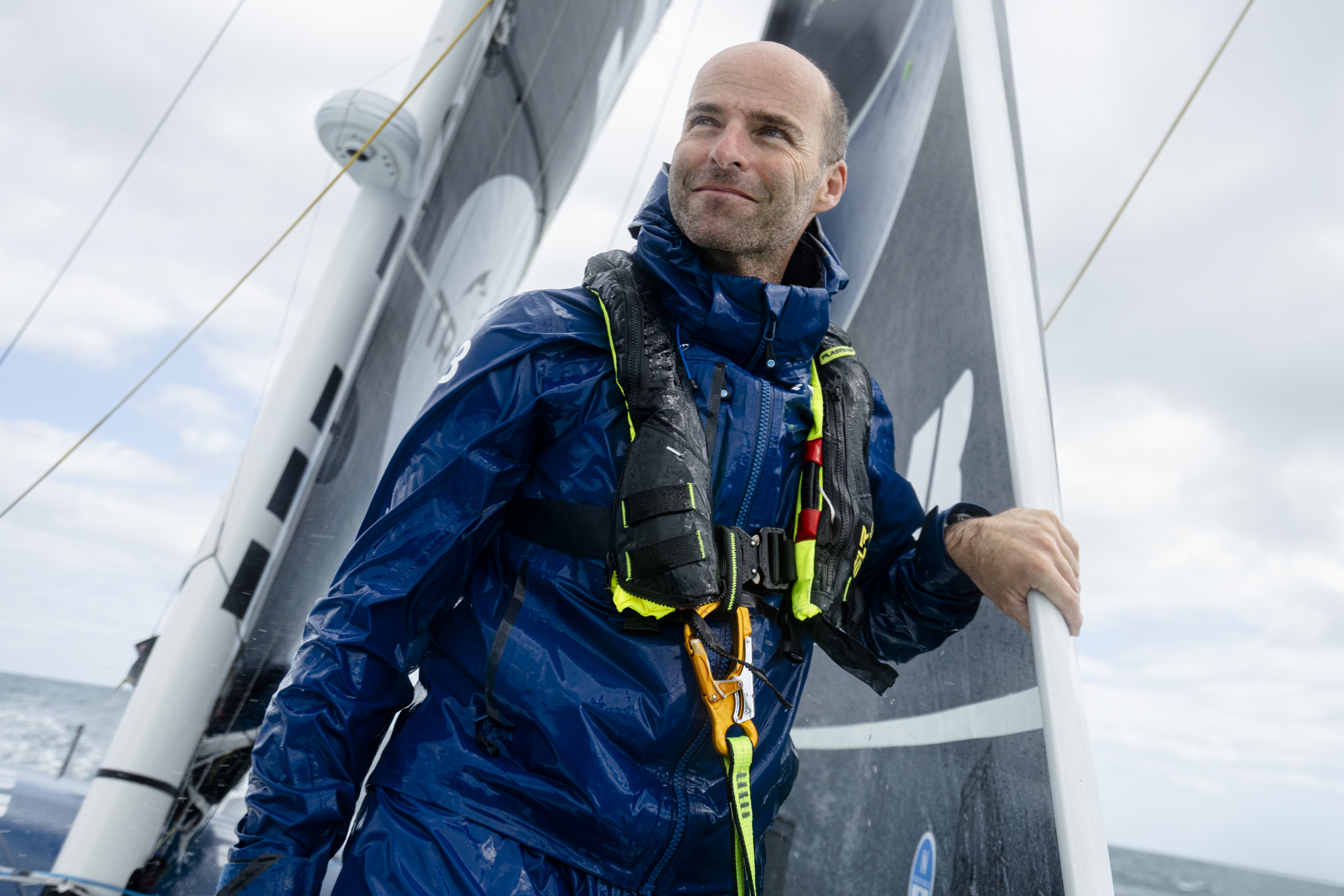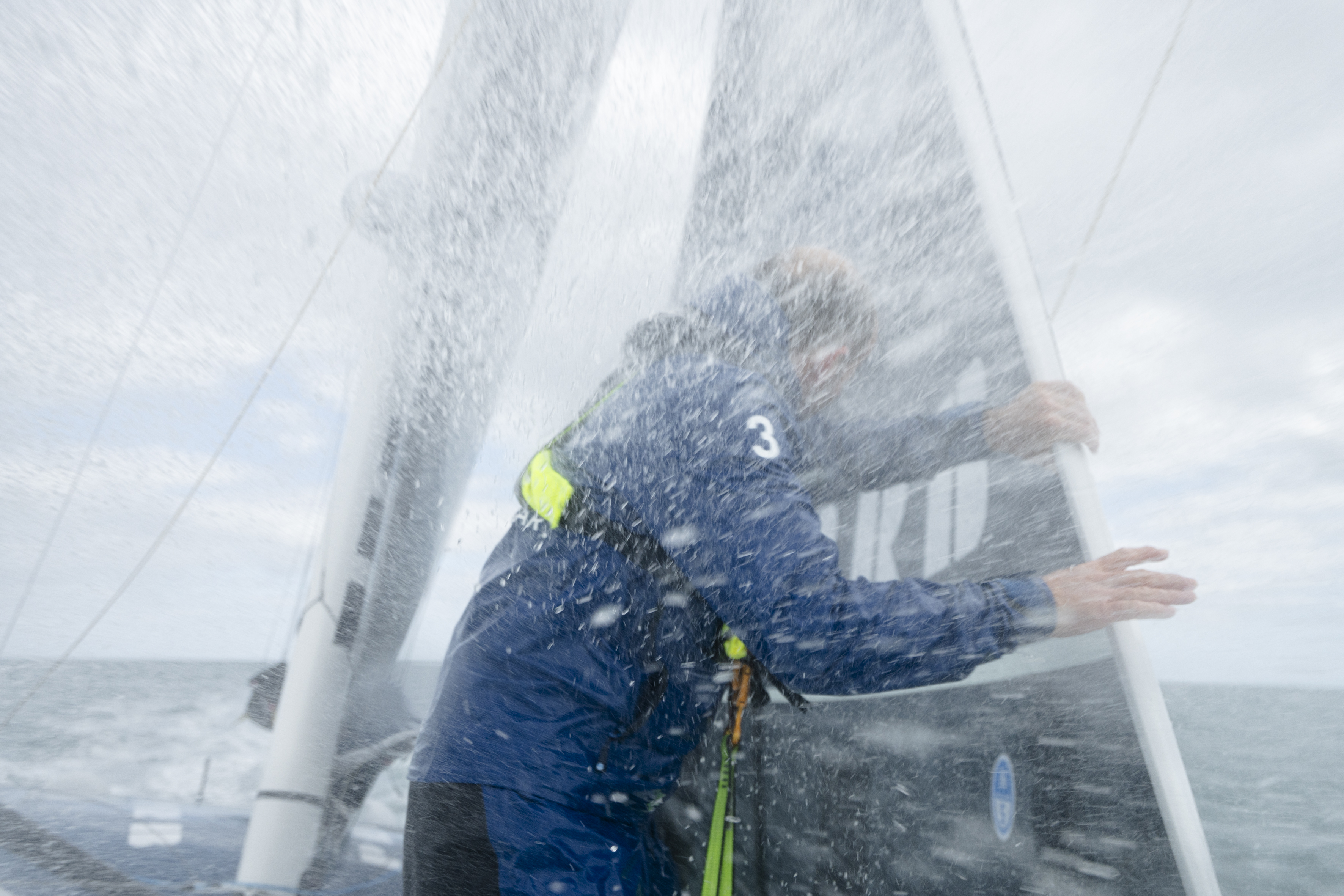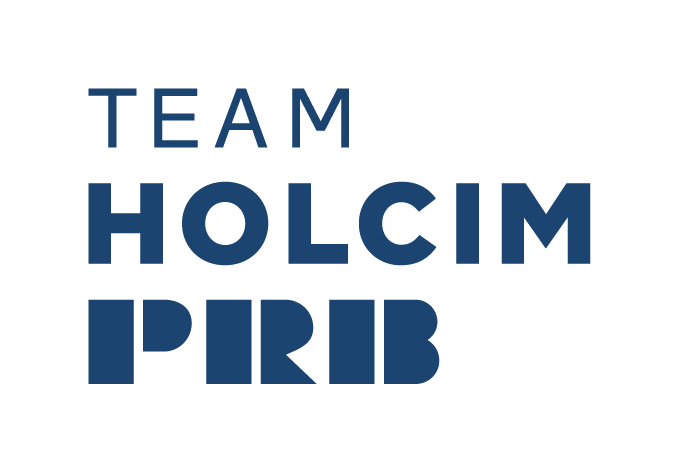"Plans rarely go as expected."
6 juin 2024
Transat New York – Vendée Les Sables

It has been just over a week since the fleet of the New York – Vendée transatlantic race set off. And if we look at the mapping on the race's website, it becomes clear that the weather has been anything but simple for the 28 solo sailors involved. The sailors have made very different routing choices based on their analysis of the weather data received on board, as well as the performance of their boats under different wind angles. The result: the Atlantic has turned into a vast chessboard where the pieces are completely scattered.
German sailor Boris Hermann chose to extend his route north, hoping to take advantage of favorable downwind conditions towards the end of the race. He is the only one to have made this choice. Charlie Dalin leads the fleet on an intermediate route that currently aims for Cape Finisterre while passing north of the anticyclone. He has managed to slip through and shows a quite spectacular lead over his competitors. Another group is trying to pass south of the anticyclone. Unfortunately, Nicolas Lunven, aboard Holcim-PRB, is no longer part of the battle among the leaders, in which he was actively competing since the start in New York. While sailing neck and neck with Charlie Dalin, his bowsprit broke. The skipper of Holcim-PRB had put on a magnificent display during the first days of racing, and the disappointment has been immense for him and the entire team. That was on Sunday. Since then, Nicolas has regained some energy and is fully focused on his race, even though he has had to disconnect from competitive mode. Deprived of part of his sails and with a damaged boat, he is sailing cautiously and making slower progress towards his goal. Onshore, the technical team of Holcim-PRB is already working hard to prepare for the summer refit that was planned and to organize the repair of the bowsprit. Nicolas does not expect to reach Les Sables d’Olonne before June 14. But everything will depend on his progress in the coming hours and the possibility of following a similar route to Charlie Dalin by slipping under the anticyclone.

Explanations:
“It’s been a week since we left, and the weather is still not very clear. We have this Azores high-pressure system that we’ve been hoping for all spring, and it’s finally arriving. But it’s not really helping us because it’s blocking our way. The fleet is a bit scattered everywhere. The first two boats have managed to escape and are going around it. Behind them, there’s a group that is completely circling south of the Azores. I’m in a group where we’re just trying to do what we can. With my situation, without a bowsprit, I no longer have any downwind sails. The option of passing south of the Azores wasn’t feasible. So, either I manage to slip under the anticyclone as best as I can, which is a bit like the route Charlie Dalin is taking, but behind. And it will be more complicated because the anticyclone will have necessarily expanded and taken up more space in the Atlantic. Otherwise, I’ll have to wait for the anticyclone to slowly shift towards Europe and follow its position. That would definitely be slower, so I hope the first option will work. It’s far from guaranteed! But I’m stubborn and persistent, so as long as the door isn’t completely closed, I’ll give myself the chance to slip south of the anticyclone. For me, there’s still the uncertainty of getting the boat moving in light winds without being able to use all my sails. It adds even more uncertainty. We’re in an atypical scenario. Normally, at this time of year, we sail these transatlantic races downwind and at quite a fast pace. And now, we’re in a very slow transatlantic. That’s life! Ultimately, offshore racing is representative of all humans: plans rarely go as expected.”











